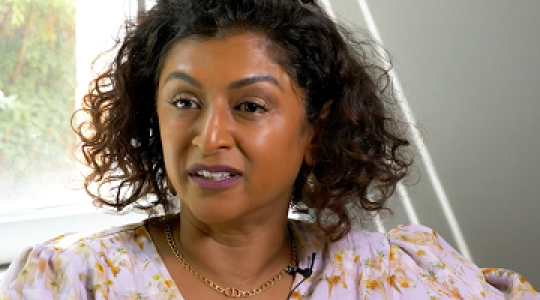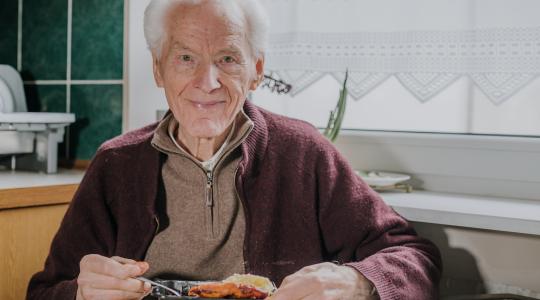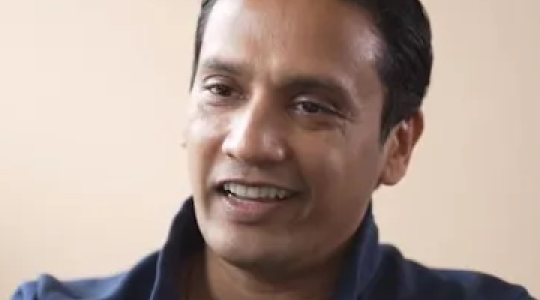As a first-generation Cuban American growing up in Miami, Heidi Chanthamany found doctors in her neighborhood were well-versed in Hispanic culture. When she moved to Texas, Heidi experienced a professional “culture shock,” as she witnessed a lack of communication and visible disconnect occurring between doctors and their Hispanic patients.

As a Community Health Worker, Heidi enjoys bridging these culture gaps. “With SWHR, I’m able to empower and enlighten not only the Hispanic population I support, but other diverse communities as well,” she says.
According to the Centers for Disease Control and Prevention (CDC), Hispanic or Latino people make up a diverse group, including individuals of Cuban, Mexican, Puerto Rican, South and Central American, as well as Spanish descent. Each group has its own history and traditions, but all share a propensity for Type 2 diabetes (17%) compared to non-Hispanic white people (8%).
Heidi has experienced this firsthand, as diabetes and hypertension run in her family.
Connecting patients with dietitians is a starting point for improved maintenance of these chronic conditions, but it can be challenging to change engrained behaviors. For example, recipes provided by dietitians may not match the ingredients patients have in their homes. “It’s about educating them on what is healthy and what they have in their fridge that they can work with,” Heidi says.
Heidi has worked with Medicare Advantage members along with individuals covered under other health plans, giving her a wide range of experience with different populations. Community Health Workers are advocates for patients, helping them obtain resources for whatever they need, including areas not covered by their health plans. This may include financial assistance, transportation and support with low-cost housing. If basic needs are not being met, patients may not have the bandwidth to worry about taking medication or scheduling regular doctor visits.
“My favorite part of the job is being able to listen to patients and feel what their needs are and be a voice in the community for them,” Heidi says.
She remembers a recent communication with a patient member from Denton County who needed a prescription but didn’t feel she could afford it. This member was behind paying for her utilities. She didn’t want to schedule a bone density scan or mammogram because she believed she had an outstanding balance with her doctor’s office. Performing her own investigation, Heidi discovered the member didn’t have an outstanding balance and she was able to confirm the routine exams would be covered by insurance.
In addition, Heidi helped the member fill out an application for financial assistance. When the member didn’t hear back for two months, Heidi contacted the financial assistance service directly to inquire why. Within days, the member received $1,700 to help cover utilities payments, making it possible for her to purchase the prescribed medications. “It was a joy that I helped her get that financial freedom,” she says.
Reflecting on her work at SWHR, Heidi says she appreciates “flexibility and the chance to have a voice and speak your mind. Management is really great about communication and empowerment. There are so many talented people working for SWHR, Texas Health and UT Southwestern. It’s been amazing learning from that knowledge.”
Building community and embracing diversity — these two commitments are inseparable for Heidi. One of the organization’s five core values, SWHR “thrives by being multicultural and multispecialty, drawing on a wide range of perspectives to deliver unparalleled results.”
Heidi lives this value every day, personally and professionally. Descended from a rich heritage of Cuban nurses and doctors, healthcare is more than her career, it’s her calling. Embracing multiculturalism is simply one part of who she is. “My last name “Chanthamany” comes from my husband’s Laotian background. I’ve learned to embrace different cultures and use these experiences to give back to the community,” she says.
SWHR and the community are better for it.



